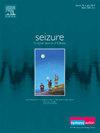Evaluating the effect of an educational comic book on the knowledge, attitudes and practices regarding epilepsy among public schoolchildren in Mauritius
IF 2.7
3区 医学
Q2 CLINICAL NEUROLOGY
引用次数: 0
Abstract
Purpose
Epilepsy affects 70 million people globally, with over 80 % living in low- and middle-income countries. In Mauritius, treatment barriers include a lack of knowledge and stigma, particularly among children. We aim to assess the effect of reading an educational comic on the knowledge, attitudes and practices (KAP) regarding epilepsy among schoolchildren in Mauritius.
Methods
A quasi-experimental study was conducted in 16 public schools located in rural and urban areas. It targeted grade 5 pupils, aged 10 and 11. Data were collected using a structured KAP questionnaire before and immediately after reading the comic. Mean KAP scores were compared at baseline and after reading. A p-value<0.05 was considered statistically significant.
Results
The study included 446 pupils, with 197 from rural and 249 from urban schools. A significant improvement in the global KAP score from 10.2 ± 2.9 to 16.4 ± 1.9 (p < 0.0001) was noted. The knowledge sub-score and the attitudes and practices sub-scores showed significant improvement across all socio-demographic groups (p = 0.0002). Significant improvements in KAP scores resulted in very satisfactory scores in both rural (16.0 ± 2.0) and urban areas (16.7 ± 1.7). Obstacles to better learning were a higher initial score (OR=0.45, CI [0.39;0.53], p < 0.0001) and monotonous reading (OR=0.34, CI [0.17;0.68], p = 0.002). All the pupils learnt a lot about epilepsy and greatly enjoyed the comic.
Conclusion
The comic is an effective tool to improve KAP regarding epilepsy in various environments regardless of sociodemographic or cultural characteristics. Raising awareness among children, in our opinion, is the best way to anticipate stigma linked to epilepsy.
评估一本教育漫画书对毛里求斯公立学龄儿童关于癫痫的知识、态度和做法的影响
目的癫痫影响全球7000万人,其中80%以上生活在低收入和中等收入国家。在毛里求斯,治疗障碍包括缺乏知识和耻辱,特别是在儿童中。我们的目的是评估阅读教育漫画对毛里求斯学龄儿童关于癫痫的知识、态度和做法(KAP)的影响。方法采用准实验方法对16所城乡公立学校进行调查。它的目标是5年级的学生,10岁和11岁。在阅读漫画之前和之后立即使用结构化的KAP问卷收集数据。在基线和阅读后比较平均KAP分数。p值0.05被认为具有统计学意义。结果共纳入446名学生,其中197名来自农村学校,249名来自城市学校。总体KAP评分从10.2±2.9显著改善至16.4±1.9 (p <;0.0001)。知识分和态度和行为分在所有社会人口统计学群体中均有显著改善(p = 0.0002)。农村地区(16.0±2.0)和城市地区(16.7±1.7)的KAP评分均有显著改善,得分非常满意。较高的初始分数是提高学习成绩的障碍(OR=0.45, CI [0.39;0.53], p <;0.0001)和单调读数(OR=0.34, CI [0.17;0.68], p = 0.002)。所有的学生都学到了很多关于癫痫的知识,并且非常喜欢这部漫画。结论在不同的社会人口或文化环境下,漫画是提高癫痫患者KAP的有效工具。我们认为,提高儿童的认识是预防与癫痫有关的污名的最好办法。
本文章由计算机程序翻译,如有差异,请以英文原文为准。
求助全文
约1分钟内获得全文
求助全文
来源期刊

Seizure-European Journal of Epilepsy
医学-临床神经学
CiteScore
5.60
自引率
6.70%
发文量
231
审稿时长
34 days
期刊介绍:
Seizure - European Journal of Epilepsy is an international journal owned by Epilepsy Action (the largest member led epilepsy organisation in the UK). It provides a forum for papers on all topics related to epilepsy and seizure disorders.
 求助内容:
求助内容: 应助结果提醒方式:
应助结果提醒方式:


